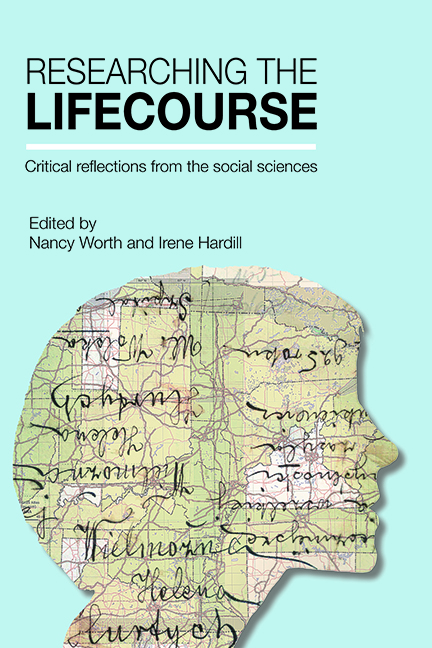twelve - Event history approach to life spaces in French-speaking research
Published online by Cambridge University Press: 08 March 2022
Summary
Introduction
The study of spatial mobility in European social sciences suffers from institutional and thematic segmentation (daily mobility, tourism, residential mobility, migration). However, a growing number of studies have shown that a comprehensive, linked approach to mobility is an effective way of capturing hybrid practices that fall between residential and daily mobility (such as multiple residences and long-distance commuting: Dupont and Dureau, 1994; Lévy and Dureau, 2002; Kaufmann and Vincent-Geslin, 2012). This approach can be used to focus more on the multi-local dimension of individuals’ spatial practices across the lifecourse. Living in more than one place at once is a topic addressed by a number of Frenchspeaking geographers, who have invented various expressions for it: ‘habiter multilocal’ (Duchêne-Lacroix, 2011), ‘habiter polytopique’ (Stock, 2004), ‘espaces de vie polycentriques’ (Lelièvre and Robette, 2006), ‘ancrages multiples’ (Imbert, 2005), and for multiple residences specifically, ‘système résidentiel’ (Dureau, 2002) are conceptual attempts to capture the attachment of one individual to more than one place. All these conceptual proposals distance themselves de facto from a Heideggerian vision that favours sedentarity and even putting down roots exclusively in one place; this ultimately helped prolong and extend the theoretical and methodological debates in 1970s French social geography concerning the concept of ‘life space’ (for example, Chevalier, 1974; Frémont, 1974).
In this chapter, we show how such a comprehensive linked approach to mobility is useful for understanding the life space of an individual as a set of places that have gradually become incorporated over their lifecourse, often involving changes of function and kinds of attachment to places (for instance, a holiday home becomes a main home, or vice versa) (Poulain, 1983). Using an inventory of 50 years of French research into residential mobility, we focus first on studies that bring a greater understanding of life space dynamics. We take residential mobility to mean any change of dwelling, whatever the distance involved. We show how data collection methods and theoretical frameworks have changed since 1950. Our hypothesis is that empirical experience has improved the theoretical debate concerning residential mobility. The rise of the lifecourse approach has shown that residence may be multi-located, and has also played a key role in understanding residential choices and the mobility they involve.
- Type
- Chapter
- Information
- Researching the LifecourseCritical Reflections from the Social Sciences, pp. 215 - 230Publisher: Bristol University PressPrint publication year: 2015



